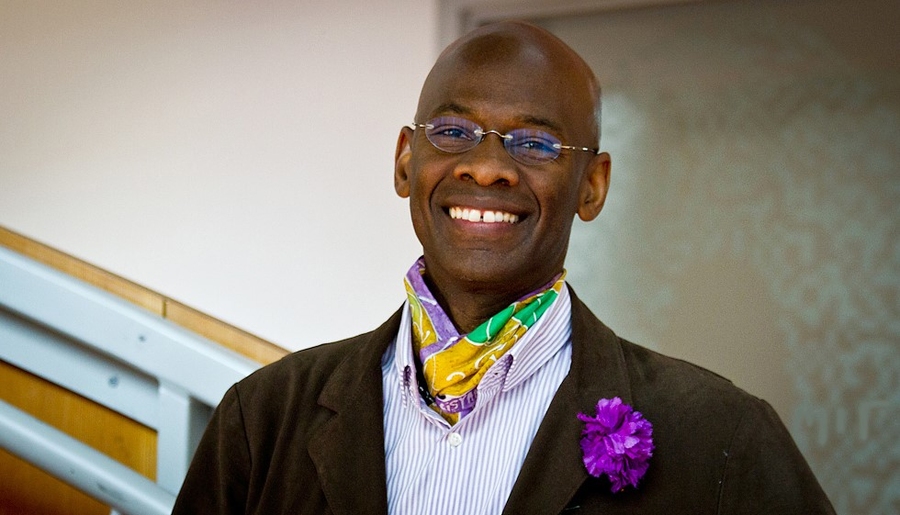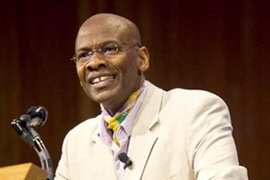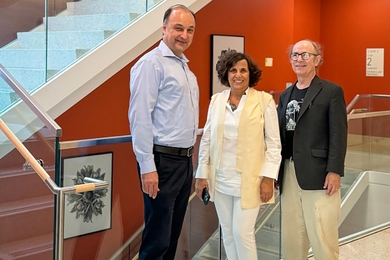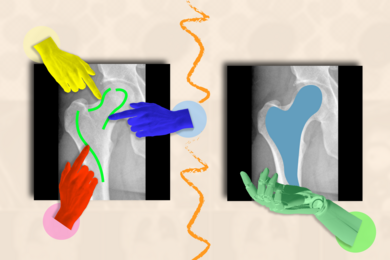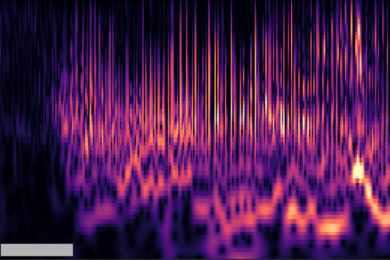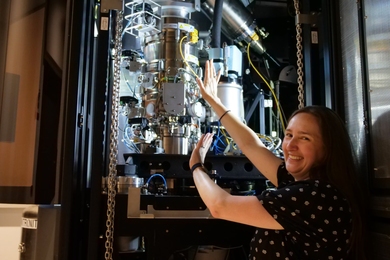Professor Michel DeGraff of MIT Linguistics has been elected as a fellow of the Linguistics Society of America (LSA), the highest academic honor within the field of linguistics, in recognition of his dynamic and impactful scholarship in Creole studies with a focus on Haitian Creole (or “Kreyòl,” as it’s called in Haiti).
DeGraff’s scholarship into the history and linguistics of Haitian Creole goes hand-in-hand with his long-standing activism for full recognition of Kreyòl as a perfectly normal language in all sectors of Haitian society, especially in education.
“It's a really truly deeply appreciated honor for me to have been selected as a fellow of the Linguistic Society of America,” reflects DeGraff, “and to join the ranks of such esteemed friends and colleagues such as Marlyse Baptista, John Baugh, Anne Charity Hudley, Noam Chomsky, Salikoko Mufwene, John Rickford, and so many others whom I so admire, near and far.”
The LSA, founded in 1924, is the premiere organization in supporting and disseminating the scientific study of languages both in academic settings and for the general public. MIT faculty and alumni represent a disproportionately large number of LSA fellows, reflecting the continuing influence of MIT’s linguistics program on the field as a whole. The LSA fellowship has previously been awarded to many of the field’s luminaries based at MIT, including MIT’s Noam Chomsky, Morris Halle, David Pesetsky, Donca Steriade, Irene Heim, Kai von Fintel, and Sabine Iatridou.
Founded in 1961, the Graduate Program in Linguistics at MIT quickly became a leading center for research on formal models of human-language phonology, morphology, and syntax. Today, MIT graduates can be found in many of the leading linguistics departments in the world, providing much of the intellectual community that defines contemporary linguistics. MIT’s Linguistics program has been named the top program globally for multiple years by QS University Rankings.
“I also value this honor as yet another kudo to MIT's linguistics program,” says DeGraff, “and what I myself have contributed to it as a Haitian linguist whose work defies some of the traditional intellectual boundaries in the field. Indeed, this fellowship doubles as a most valuable appreciation for the often-undervalued work that my MIT-Haiti team and I have been doing at the sweet spot where de-colonial inquiries and advocacy in linguistics, education, and social justice intersect. The discovery of this rich intersectional dynamic would have been impossible without close collaboration and friendships with colleagues both at MIT and in Haiti across the unfortunate North-South divide. At MIT alone, I am particularly grateful to valiant educators at MIT Open Learning, MIT's Teaching and Learning Lab, plus so many other units in SHASS [the School of Humanities, Arts and Social Sciences], the School of Science, the School of Engineering, and MIT Sloan [School of Management]. In Haiti, our colleagues — true pioneers, really — are too numerous to cite them all!”
Danny Fox, head of MIT Linguistics, celebrated the honor as recognition of DeGraff’s multifaceted, socially-minded approach to his field, as well as recognition of his outstanding scholarship. “It is good to see a professional organization like the LSA promoting scientists not just for their research, but also for the kind of activism that might accompany it: battling prevalent misconceptions about the nature of the world, identifying their detrimental consequences, and fighting for change. Michel has been involved in all these activities, mostly through the MIT-Haiti initiative, which he was instrumental in establishing. We are all very proud.”
DeGraff’s scholarship and activism has had tremendous influence on the linguistic study of Haitian Creole. In 2010, he co-founded the MIT-Haiti Initiative with Vijay Kumar of MIT Open Learning, a project that seeks to advance “development, evaluation, and dissemination of active-learning resources in Kreyòl to help improve education in Haiti. This is part of larger efforts to valorize Haitian culture and identity, and to promote human rights and national sovereignty.” The initiative includes projects such as Platfòm MIT-Ayiti pou yon lekòl tèt an wo, an online database for the curating and sharing of teaching materials in Haitian Creole for learning at all grade levels, which he leads with Professor Haynes Miller (MIT Department of Mathematics) with funding from MIT Abdul Latif Jameel World Education Lab.
DeGraff is also a founding member of Akademi Kreyòl Ayisyen (the Haitian Creole Academy), a state institution launched in 2014 for the promotion of Haitian Creole, as mandated by the 1987 Haitian Constitution.
He views this honor as an opportunity to further highlight and advance the important work of visibility and preservation that motivates his dedication to the field: “This work is crucial in making a better world, especially for communities that are impoverished because of colonial and neo-colonial language barriers that are often made invisible, even among linguists. I plan to use this LSA fellowship as one more bullhorn to keep pushing forward this agenda for social justice through linguistics and education. This fellowship could not be more timely.”
DeGraff will be officially inducted as a fellow on Friday, Jan. 6, 2023, alongside seven other top scholars in the field, representing universities from around the globe.
